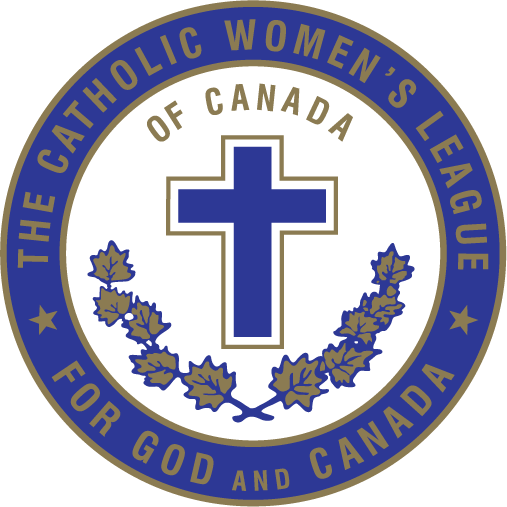Gisela Montague
B.C. & Yukon Provincial Council President
• Ninety-four of 126 councils reported.
• One hundred per cent of diocesan councils reported.
Informing Members
Sources of information reported most frequently were The Canadian League magazine (90%), followed closely by national, provincial and diocesan communiqués and websites. Parish bulletins, followed by newspapers and Google searches were also used. Others sources of information included organizations such as the Canadian Conference of Catholic Bishops, Catholic Organization for Life and Family and Campaign Life Coalition. Catholic media outlets, pro-life and hospice organizations, newsletters and Facebook were also cited.
National Priorities
National priorities most acted upon were removing the Canada Summer Jobs program attestation, medical assistance in dying from palliative care/hospice facilities, age verification mechanisms for adult pornographic websites, protecting the conscience rights of healthcare professionals, standards for labelling of products deemed flushable, Gladue reports for Indigenous offenders and eliminating the Goods and Services Tax from child safety products. These topics were discussed at meetings and explained in newsletters. Councils engaged the standing committee chairperson, and some councils arranged to have speakers at meetings. Letters were written to government officials expressing members’ concerns.
Communication with Spiritual Advisors
Almost all councils report the spiritual advisor was supportive, however only one-half of spiritual advisors attended monthly meetings. Very few councils stated the spiritual advisor was not supportive of the League. Some councils had not traditionally invited the spiritual advisors to meetings. Serving other parties and other duties outside the parish kept some spiritual advisors from being present at meetings. One bishop and spiritual advisor became more familiar with the League as the provincial convention was held in their diocese.
Representing Parish Council
Councils encouraged support of all events, such as meetings and conventions, parish functions, fundraising events and dinners, special masses, sacramental events, pro-life events, World Day of Prayer, community events and conferences, retreats and school ceremonies.
Although well supported, only presidents or their representatives had all costs covered. Carpooling and sharing rooms were the primary choices to help offset costs for travel to these events.
Resources Used at Meetings
The following resources were used—Constitution & Bylaws, Executive Handbook, council policy and procedure manual, Robert’s Rules of Order and the National Manual of Policy and Procedure.
Promote Active Leadership in Councils
Presidents spoke on membership, palliative care, pro-life issues, mental health, scholarships and bursaries. Presidents signed petitions, presented oral and written reports, and planned conventions.
Assistance When Assuming President
Most assistance came from past presidents, current executive members and life members, and some presidents had personal mentors.
Greatest Challenges in Transitioning to President
Feeling overwhelmed, not having a full slate of officers, amount of paperwork, keeping members interested, resistance to new ideas, meeting expectations, feeling undertrained, finding time, member criticism, public speaking, lack of confidence, old age and failing memory were reported as being the greatest challenges in transitioning to president.
National Theme
Most presidents found it beneficial to have a national theme and agreed with having a new theme with each national president.
What Makes You Most Proud of Your Council?
Councils reported teamwork, how much was accomplished with such few members, being a welcoming council, support, energy, enthusiasm and involvement of active members who comprised one-third of members, participation in conventions, spiritual programs and fellowship within the church as sources of pride. As a struggling diocesan council, one president reported the great love for the League and each other as her source of pride in the council. Consistent comments included—members work well together, are supportive of each other, have great love, are determined, are proud of the achievements, and are prayerful, considerate and respectful. Hosting the provincial convention with only a handful of members and help from other members in the province was also noted.
Comments
One diocesan president was disappointed with the response to the online reports. Many small councils with few executive members felt overwhelmed with online reporting. More should have been done to encourage members to work together to complete the online reports and not rely on the executive to complete the task. Another diocesan president had knowledge of how many filled out the online report but found not all were counted and as such, did not present a true picture of the diocesan council. Some councils, though they were small, were still enthusiastic groups of members. In the diocesan president’s view, the online survey did not reflect the passion for the League.
Provincial President’s Activities
The first task after becoming provincial president in June was to attend the national convention in Winnipeg as a member of the national executive. Following that, the provincial fall meeting in Kelowna was planned, where Life Member Nancy Simms was asked to present an update on the strategic planning. Two parish councils invited me to bring greetings from the provincial council. I asked the chairperson of spiritual development to give a presentation to the seminarians in Mission. With help from the parish priest, Mary Wagner’s Defense of Life video was uploaded to YouTube. The updated design of the “Age Verification Card” was gifted to national by the provincial chairperson of communications. I researched the possibility of B.C. & Yukon Provincial Council holding the national convention in 2022. In November, I attended the national executive meeting in Winnipeg.
My Comments
In B.C. & Yukon Provincial Council, there were six diocesan councils—three fairly strong and active, one struggled but worked hard to improve, another struggled, worked hard and unfortunately disbanded. Another council was a blended parish/diocesan council with few members and a president that had tried hard to become a past president for some time. The president reports told the story of dedicated members achieving much by working hard.


